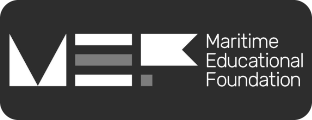Resume Hints and Tips when coming ashore
Posted on 26 March 2018 by Patrick McMurray
Coming Ashore
One problem seafarers face when coming ashore, is the challenge of writing a CV or a Resume. Shore based employers have particular expectations for how a Resume should look, what it should contain and how long it should be. Shore based employers can also be unclear about the details of what working at sea involves.
Our friend, Mike Wall, has written a very good guide to CV or Resume writing for seafarers coming ashore.
Mike's website and details can be found at http://www.mikewallassociates.com/
Resume hints and tips
Firstly, this article relates to writing a resume or Curriculum Vitae (CV) for prospective shore-side employment which will be very different from one which you may write to change shipping companies in a similar rank.
Your resume is your personal advertisement. Together with a covering letter, it gives you an opportunity to sell yourself to, and impress, a potential employer and/or its recruitment consultant.
‘Most employers take no longer than 15 seconds to read your entire resume’- Cool Careers for Dummies (IDG Books, 1998)
When drafting your resume, always keep in mind the fact that the employer may have another 50 in his in-tray. For this reason, you should keep it brief and concentrate all important information on the first page. Using lists and bullet points instead of long sentences will also make it a lot easier to read.
A great many resumes are not even read because they are too long, too boring and badly laid out. You need to make your resume stand out from that pile. Do this by making it easy to read and easy to find out what you are.
If you are planning on changing direction completely, your prospective employer may have no knowledge of activities aboard a ship. For this reason, you may need to expand on your duties to give a better understanding of your experience and capabilities.
The five golden rules for writing your resume:
1. Start with a summary.
2. Keep it short.
3. Keep it factual.
4. Keep it logical and include clear headings for the following sections:
• Employment History.
• Education History and/or Qualifications.
• Languages – state whether basic, proficient or fluent.
• Computer literacy.
• Professional memberships and offices held.
• Any special experience and/or skills.
• A minimum of two references with their relationship to you.
5. Avoid spelling mistakes or grammatical errors. These do not create a good impression.
Start with a Summary
Always include a short factual summary at the beginning. This allows the reader to establish what you are and what you have done within the first 10 seconds of reading your resume. Do not be tempted to mention subjective points such as ‘good team player’ or ‘enthusiastic’.
Some examples:
‘A qualified and experienced Chief Engineer having served aboard various ship types, sizes of vessel and types of engine for a total of 12 years. Having responsibility for the technical operation and maintenance of the vessels on which I served together with management of a department of 12 engineer officers and crew.’
'A qualified and experienced master mariner having served aboard various ship types, sizes and types of vessel, eg, bulk carriers, container vessels and tankers. Having overall responsibility for ship operations, cargo care and management of 24 officers and crew.'
Keeping it short
Your resume should be no more than 3 pages in length. You may be desperate to include every nuance of detail, but this will detract attention from important information.
• Following the factual summary, list your personal details, eg: John Smith, British, DOB 23 July 1959, Married.
Include your private address, telephone number and contact details.
• Your employment history should be in reverse chronological order, ie, the most recent job first. Use a clear bold heading, eg:
1989-1993: P&I Claims Executive, XYZ P&I Association, London
• Don’t forget that when applying for a job in shipping, an employer will know what various standard shipping jobs entail. Therefore, do not explain in detail what a second officer or second engineer does. State the title of the position you held, relevant information such as vessel types involved, categories of work carried out, responsibilities, achievements (quantify if possible such as into financial terms, improvements in safety figures or sales figures) and any additional experience or projects that are not usual for the job.
• If you are or were a seafarer, list both the level of certificate you hold and the job title you have held. It is confusing if you just state that you hold a Class 1 Deck Certificate of Competency as we cannot tell what rank you have achieved.
• If you hold a non-UK qualification, you should state the equivalent UK qualification/level of qualification. You should also explain if you have taken any transfer qualifications – for example, it is surprising how many foreign lawyers working in the UK do not make it clear if they have taken the foreign lawyers’ transfer test and qualified in England.
• Do not give detailed descriptions of jobs held 20-30 years ago.
• Do not repeat yourself if several jobs held have included similar responsibilities.
• Your education history should also be in reverse chronological order.
• The younger you are or the more recently you attained your qualifications, the more important it is to list the grades you achieved.
Keeping it factual
Don't tell the prospective employer you are hard-working, enthusiastic, a team-player, ambitious, etc. Let the facts, achievements, and references, speak for themselves. Your referees should also confirm such facts.
By all means refer briefly to statements made in employment appraisals, eg:
Jan 1983 – June 1994 Senior Operations Manager, J S Smith Shipping Ltd.
A gradual progression through the organisation from operations assistant to operations manager (since 1991), handling a full range of operations duties, including claims (insurance and demurrage / charterparty problems), instructions to vessels, bunkering, scheduling, appointment of agents and management of a team of 7 people, with responsibility for recruitment. The department is responsible for a fleet of 6 chemical tankers and 9 bulk carriers (20-45,000 dwt).
Presentation
You will note that the writer has used only one typeface and two fonts, ie, normal and bold, which is easy to read. Do not be tempted to use lots of different typefaces and fonts which may cause the employer to throw your submission in the bin!
Caution
It is critical that all information in your resume should be factually correct. If you tell lies, you will be found out as prospective employers generally carry out due diligence to check the information with your referees. Be warned. In some jurisdictions it is a criminal offence to issue a fraudulent resume with significant penalties. However, it is not the direct penalty which is the hardest to take, it is the detrimental effect of being found guilty of fraud and your reputation. You will never be used by law firms again.





